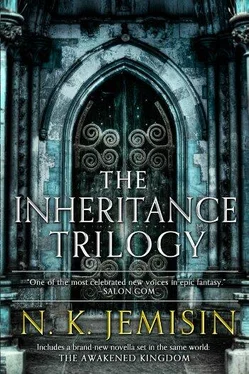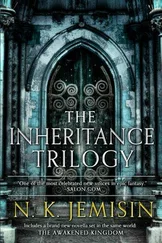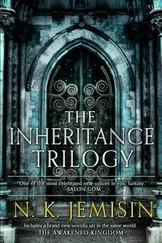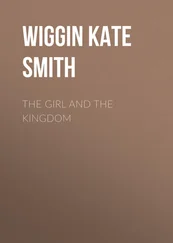They may have been motivated by more than Shahar’s words, however. There was a new object in the sky, and it was drawing closer.
A week after I woke, when I was feeling strong enough, I left Echo. Some godling—don’t know which—had stretched a tongue of daystone from the palace’s entrance to the lakeshore, wide enough for carriages and pack animals. Nowhere near as elegant as Sky’s Vertical Gate, but it worked. Deka, who needed a break from the frenetic work of the past few weeks, decided to come with me. I considered trying to persuade him otherwise, but when I turned to him and opened my mouth, he gave me such a challenging look that I closed it again.
It took us an hour to walk over the bridge, and we spoke little on the way. In the distance we could see the humped, distorted shape of the fallen Tree through the morning haze. Neither of us looked in that direction often. Closer by, a fledgling city had already begun to develop around Echo and its lake. Not all the survivors wanted to live in Echo, so they had built tents and makeshift huts on the shore in order to stay close to family or new-made friends in the palace. A kind of market had developed amid this camp as a result, not far from the bridge’s terminus. Deka and I rented two horses from a caravanner who’d set up a stall—two fine mounts for the young man and his grandfather, the proprietor said, trying to be friendly—and began our journey, which would supposedly take only a day. We had no escorts or guards. We were not that important. Just as well; I wanted privacy to think.
The road we’d chosen to take, once the main thoroughfare between the city and its surrounding provinces, was badly damaged. We rode across humped pavement and patches of rubble that forced us to dismount frequently and check the horses’ hooves for stones. In one place the road simply split, falling away into a chasm that was unpleasantly deep. I was fine with going around it; there was nothing but ruined farmland in the vicinity, so it wasn’t as though the detour would take long. Deka, however, in a rare show of temper, spoke to the rocks and got them to form a narrow, solid bridge across the gap. We crossed before I muttered something to Deka along the lines that he should really be less quick to use magic to solve problems. He only looked at me, and I hunched. It had just seemed like the sort of thing an older man should say to a younger one.
We moved on. By afternoon, we reached the outskirts of the city. It was harder going here, and the damage slowed us down. Every street that had once been cobbled was rubble; the sidewalks were death traps, where we could even find streets. I caught a glimpse of the utter ruin that was South Root and despaired. There was a chance, a slim one, that Hymn and her family had gotten out before Skyfall. I would pray for Yeine to watch over them, alive or dead.
We did not want the city itself in any case, so it was easier to skirt around the worst parts, using the outlying districts to make our way. These had been the homes and estates of the middling wealthy—too poor to build onto the World Tree’s trunk but rich enough to buy the better sunlight that could be had farther from the roots. This made things easier, because they had wide lawns and dirt paths that the horses could manage. There was plenty of sunlight now.
Eventually we reached the trunk itself, a long, low mountain laid along the earth, as far as the eye could see. We surprised our first survivors here, since the rest of the area had been thoroughly abandoned: scavengers, picking through the ruins of the mansions that had once been attached to the Tree. They glared at us and pointedly fingered hatchet handles and machetes. We courteously gave them a wide berth. Everyone was happy.
Then we reached Sky. Where, to my surprise, we were not alone.
We smelled Ahad’s reeking cheroot before we saw him, though the scent was different this time. My nose was not what it had been, so it was only when I got close that I understood he’d put cloves in the thing to make the smell less offensive. I realized why when I noticed that the smoke was mingled with Glee Shoth’s hiras-flower perfume.
They likely heard the horses before we came into sight but did not bother to alter their position, so we found Ahad draped atop one of the nearer, smaller piles of rubble as though it was a throne. Behind him was Glee. He leaned back against her, his head pillowed on her breasts. She had propped one elbow on a smooth piece of daystone, her free hand idly combing his loose hair. His expression was as cold as usual, but I didn’t buy it this time. There was too much vulnerability in his posture, too much trust in the way he’d let Glee hold his weight. I saw too much wariness in his eyes. He could not hide some things from me, which was probably why he hadn’t bothered to try. But he would kill me, I suspect, if I dared to comment on it. So I didn’t.
“If you’ve come to dance on this grave, you’re too late,” he said as we dismounted and came to look up at them. “I already did it.”
“Good,” I said, nodding to Glee, who nodded silently back. (She, unlike Ahad, did not bother to hide the pride she felt in him. And there was a decided smug possessiveness in the way she stroked his hair that reminded me fleetingly of Itempas, back when he’d held Nahadoth’s affections.) I stretched and grimaced as my knees twinged after the long ride. “I’m not really up to dancing anymore.”
“Yes, you do look like shit, don’t you?” He exhaled a long, curling stream of smoke, and I saw him consider whether to hurt me further. There were so many ways he could have done it with a casual comment. So it turns out you’re an even worse father than I thought , or perhaps Glad to know I wasn’t your first mistake . I braced myself as best I could, though there was really nothing I could do. According to Deka, I was still aging faster than I should have been, perhaps ten days for every one. Merely knowing that I was a father was a relentless poison that would kill me in a year, two at the most. Not that any of us had so long to wait.
Ahad said nothing, to my relief. Either he was feeling magnanimous, or Glee had begun to mellow him. Or perhaps he simply saw no point under the circumstances.
“Hello,” said Deka. He was staring at Ahad, and belatedly I remembered that I’d never gotten around to telling him about his origins. My long-lost son’s attempt to destroy the universe had been a bit distracting.
Ahad sat up, eyeing the boy. After a moment, a slow smile spread across his face. “Well, well, well. You would be Dekarta Arameri.”
“I am.” Deka said this stiffly, trying and failing to conceal his fascination. They did not look wholly alike, but the resemblance was close enough to defy coincidence. “And you are?”
Ahad spread his arms. “Call me ‘Grandpa.’ ”
Deka stiffened. Glee threw an exasperated look at the back of Ahad’s head. I sighed and rubbed my eyes. “Deka… I’ll explain later.”
“Yes,” he said. “You will.” But he folded his arms and looked away from Ahad, and Ahad uttered a sigh of disappointment. I wasn’t sure whether he really minded Deka’s disinterest or was just using another opportunity to needle the boy.
We fell silent then, as was proper at graveside.
I gazed at the great piles of tumbled daystone and slipped my hands into my pockets, wondering at the feelings within me. I had loathed Sky for all the years of my incarceration. Within its white walls I had been starved, raped, flayed, and worse. I had been a god reduced to a possession, and the humiliation of those days had not left me despite a hundred years of freedom.
And yet… I remembered my orrery, and En pulsed in gentle sympathy against my chest. I remembered running through Sky’s wild, curving dead spaces, making them my own. I had found Yeine here; without thinking, I began to hum the lullaby I had once sung her. It had not been all suffering and horror. Life is never only one thing.
Читать дальше












